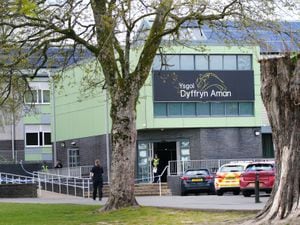I’m sad and angry at Northern Ireland politics, says one architect of Agreement
‘It is the future we should be looking at,’ said Seamus Mallon.
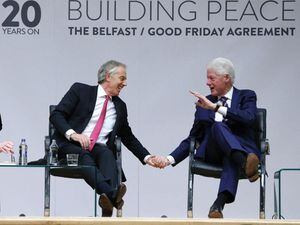
One of those who negotiated the Good Friday Agreement has said he is sad and angry at the state of politics in Northern Ireland.
In a stinging attack, former SDLP deputy first minister Seamus Mallon, who helped broker the 1998 peace accord, claimed the two biggest parties at Stormont had created political silos, debasing the process and “almost Balkanising” the country.
He said: “Am I sad? Yes. Am I angry? Yes, very angry.
“Especially when I watch television sitting in my house, just me and the dog, and I watch the hypocrisies which are unbelievable and the untruths which are believable.
“Politics has been debased and diminished by these two political silos which have almost Balkanised the Northern Ireland that I live in.
“It is the future we should be looking at.”
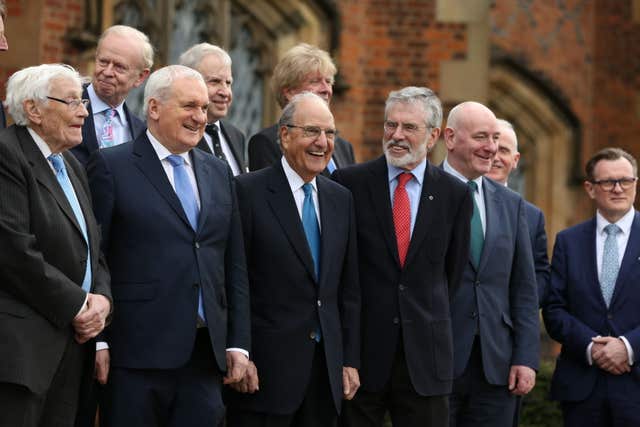
His former powersharing partner, ex Ulster Unionist Party leader David Trimble, struck a more optimistic note, saying he believed “there was a good chance” of devolution returning this year.
But Lord Trimble conceded that “prediction” was a difficult thing.
He also claimed Brexit was being used by some to undermine the Agreement.
Lord Trimble said: “Brexit is one thing – the Agreement is completely different. There is no interaction between them at all.
“But what is happening at the moment is some people are trying to use Brexit to undermine the Agreement and I hope they are unsuccessful.”
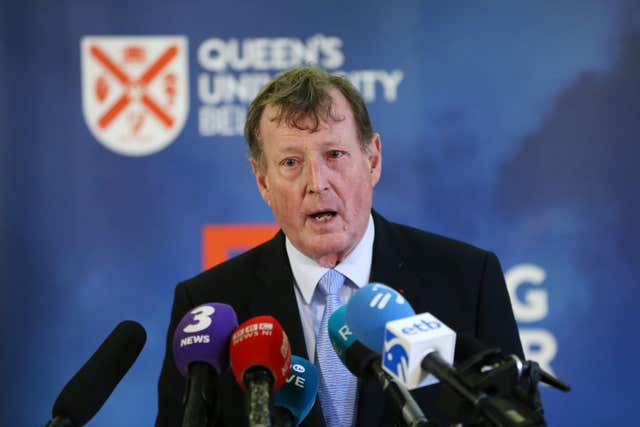
Mr Ahern said the Agreement would be a connection between the British and Irish governments post-Brexit.
He said: “I think the Good Friday Agreement will now form the impetus for the British and Irish governments to meet – I would suggest every quarter – to build and continue relationships that Brexit has ruined and damaged.”
He said it was important for ministers and civil servants to “collaborate” on “major issues”.
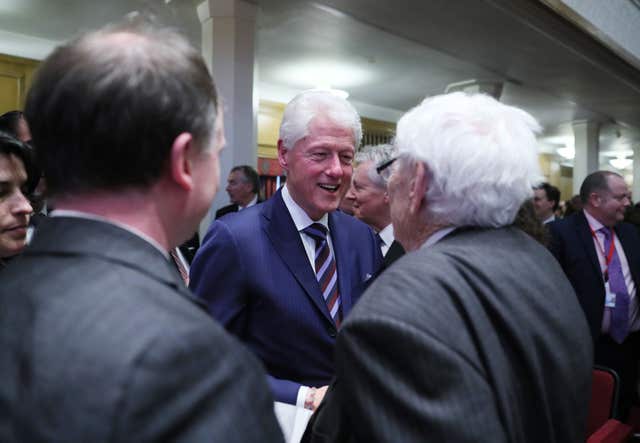
“As far as Brexit is concerned, and hard border, soft border, sunny side up border, every kind of border – there can be no border.
“It will not be acceptable in any event,” he added.
Meanwhile, Tony Blair’s former chief of staff Jonathan Powell said the strength of the Good Friday Agreement had “served” Northern Ireland, the UK and island of Ireland well over the past 20 years.
But he cautioned that it now faced two threats.
Mr Powell said: “One internal threat – which is the failure to get the Executive up and running.
“And that threat must be met and that does require real commitment by Number 10 Downing Street and the Taoiseach.
“The Brexit challenge – the external challenge – is also a very serious one.
“Both governments and the EU are committed to no hard border, but the question is: how do you avoid a hard border?
“And a series of contradictory commitments were made in December and there is no logical easy way to meet all of those.”
He said he could not see any way of avoiding a hard border other than Britain remaining in, at least, the Customs Union.
Former Sinn Fein leader Gerry Adams also took part in the discussions.
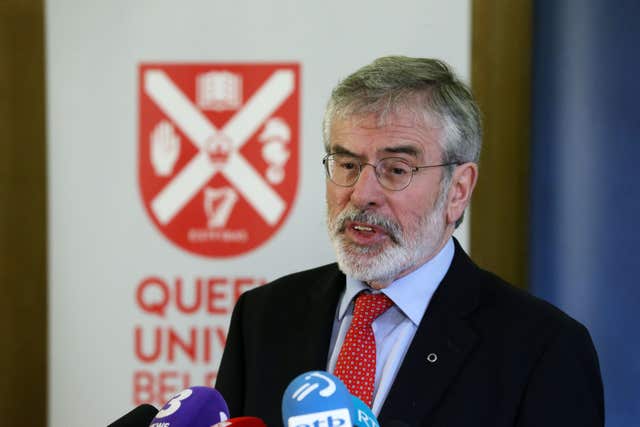
“The institutions will be back in place,” he said.
“The Good Friday Agreement remains the accord which is going to guide politics on this island and arrangements on this island and relationships on this island into the foreseeable future.
“I think the future is very bright. There is always an ebb in a process. There is always an ebb and a flow.
“We are in an ebb, it is temporary.”
Meanwhile, speaking ahead of the event, former DUP first minister Peter Robinson, who initially opposed the Agreement, said Brexit had the potential to cause “considerable disruption” to politics.
He said: “We have to deal with it in a way that causes as little disruption to our political process and it has the capacity to cause considerable disruption.
“I just trust the politicians of the day, and I am talking principally of the Prime Minister, are capable of negotiating an outcome that resolves some of these issues without some of us having to start putting up flags in order to show how British or how Irish we are in Northern Ireland.
“I think it is possible to do it.”




